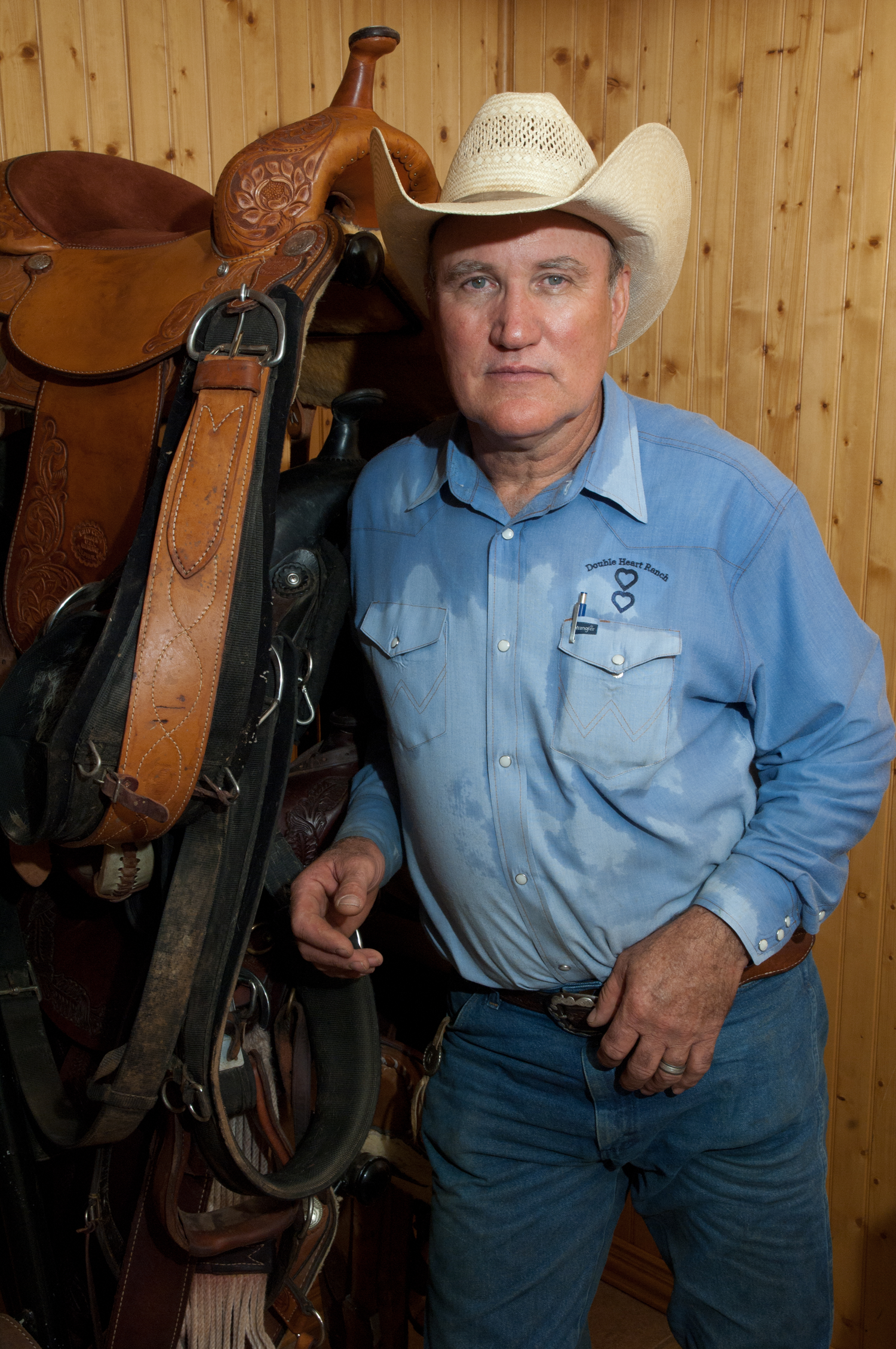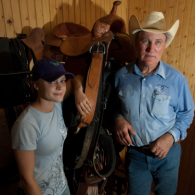Chico Bond took his thumb and let it rest on the mare’s neck. Without a hint of movement on his part she dropped her head a bit, a bit more, swiftly and calmly towards the stable floor. He removed his hand, and she bobbed right back up, apparently unaffected. “See, it’s just as simple as that really,” he said. “That’s what you do, but on a bigger scale. People try to make it more complicated than it is.”
At the Rafter D Ranch in Denison, horse trainer Chico Bond spends all day riding and training an expanding herd of foundation quarter-horses from lines like Hancock, Driftwood, and Leo. His uncommon training style is as simple as a thumb on the neck.“Training horses is learning to apply pressure, horses just want to get along,” he said, “and instead of hurting them and scaring them, slight pressure makes them uncomfortable and they learn from what gets you to release the pressure. Good pressure is not pulling, it’s lifting a very slight amount, and the horse will search for how to make it stop.”
Although simple to understand, skill is needed to train the horse correctly. “Timing is the most important thing. You have to keep a careful eye on them and reward the slightest try, because you don’t want them to do the right thing and not be rewarded. It’s the trainer’s responsibility to get across the pressure, to react the instant the horse moves.” said Bond. “You know practice makes perfect? Well, perfect practice makes perfect. You train through repetition, but you spoil an animal by rewarding wrong behavior. You can’t spoil by rewarding the correct behavior—just like kiddos.
“Horses are herd animals, they’d rather have a leader than be a leader. It’s important to demonstrate to a horse that you can protect it. They’re prey animals, you’re working with centuries of instinct. The first [instinct] is to flee, but you want the animal to look to you for protection.” Bond teaches his horses to look to him at a young age. “We set up controlled situations in the round pens where we rope them and keep them roped til they look to me and then release them. Timing is very important, you have to pay very close attention and the second they look let them go and reward them.
 “What you’re looking for is a partnership when you train them,” he said. “The horse responds to what you ask freely and without resentment, willingly. When you break horses, you’re breaking their will. They do the job but they don’t do it willingly. He [the horse] needs to be part of it. You need to be able to express what you want in a way the horse understands.”
“What you’re looking for is a partnership when you train them,” he said. “The horse responds to what you ask freely and without resentment, willingly. When you break horses, you’re breaking their will. They do the job but they don’t do it willingly. He [the horse] needs to be part of it. You need to be able to express what you want in a way the horse understands.”
Bond, born in Gainesville and raised in Sherman has always had a rapport with horses. “God just made me that way, all my life. I grew up around horses, and I’ve always loved being around horses. When I was younger I did factory work, I was a welder and machinist. A fellow got me started riding and I just jumped at the chance. It’s a God-given talent, I mean I’m lucky to make a living doing this, if I wasn’t getting paid I’d be doing this for free.”
He started training in the mid-70s, and originally did it the traditional way—breaking the horse. He changed his ways after renting a video tape “Round Pen Reasoning” by John Lyons. Bond realized this method was more effective than what he had been doing, “it worked because it worked for the horse,” he said, “it made more sense.” Bond has since learned from Bill Smith in Wyoming, and attended clinics with Ray Hunt—both renowned trainers. Previous to the Rafter D, his skills had been advertised by word of mouth. “In the past I’ve been booked three years in advance. I still do take in a few individual horses. Right now I’m booked until next March.”
“This is something that I’ve always loved to do, said Bond, “I do my best to give the animal a good foundation so that when they’re working they can hold up and be good horses. You don’t ever have a ‘finished’ horse.’ There’s always more you can teach a horse, there’s always more a horse can do.”


I have to more than agree with Kathy…. There’s not a kinder or better man anywhere and his ability’s with a horse speak for themselves. I don’t have to tell you the horses he works with will tell you and like Chico told me when I was a you 25 yr old kid and I’m 43 now and it’s never changed. The horses don’t know how to lie so listen to them!
One of the finest horsemen and man i have ever known. . My big brother,chico!lil sis.,kathy